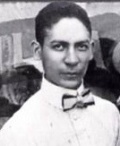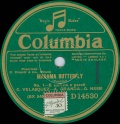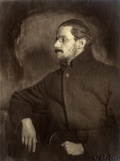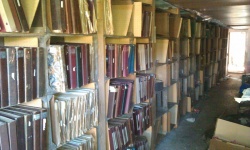From PUBLIC DOMAIN PROJECT MEDIAPOOL
|
|
| Line 20: |
Line 20: |
| | |[[File:Titanic.jpg|120 px|thumb|left|[[Wikipedia:Nearer, My God, to Thee|Nearer, My God, to Thee]] played the '''Titanic's band''' until the end on 15 April 1912 ([[Edison-ba-1647|listen]])]] | | |[[File:Titanic.jpg|120 px|thumb|left|[[Wikipedia:Nearer, My God, to Thee|Nearer, My God, to Thee]] played the '''Titanic's band''' until the end on 15 April 1912 ([[Edison-ba-1647|listen]])]] |
| | |[[File:Revolutionary Joyce Better Contrast.jpg|120 px|thumb|left|Swiss tenor [[Wikipedia:Max Meili|Max Meili]] sang '''Addio terra, addio cielo''' at [[Wikipedia:James Joyce|James Joyce]] funeral in 1941. Find more works [[Archive:Artist M (Public domain)#Meili, Max (1899-1970)|here]]]] | | |[[File:Revolutionary Joyce Better Contrast.jpg|120 px|thumb|left|Swiss tenor [[Wikipedia:Max Meili|Max Meili]] sang '''Addio terra, addio cielo''' at [[Wikipedia:James Joyce|James Joyce]] funeral in 1941. Find more works [[Archive:Artist M (Public domain)#Meili, Max (1899-1970)|here]]]] |
| | + | |[[File:Relocation-20120813a.jpg|120 px|thumb|left|The '''Public Domain Project''' grows. Additional 35,000 records were donated by [[:Category:Martin Osterwalder collection|Martin Osterwalder]]. The first available work is '''[[Wikipedia:Edvard Grieg|Edvard Grieg's]]''' [[Wikipedia:Incidental music|incidental music]] '''[[Wikipedia:Peer Gynt (Grieg)|Peer Gynt]]''', [[Vocalion-a38009-485as|Part 1]] ([[commons:File:Vocalion-a38009-485asogg|listen]]) and [[Vocalion-a38009-486as|Part 2]] ([[commons:File:Vocalion-a38009-486asogg|listen]])]] |
| | |- | | |- |
| | |} | | |} |
Revision as of 20:45, 28 August 2012
Public Domain Pool: Featured recordings
|
|
|
|
Encyclopedia
|
| The Encyclopedia (Wiki) contains the complete music database of the PD Radio and the PD Pool
Help us to build up a free Music encyclopedia (Music dictionary)
|
|
PD Project news
|
- 24 August 2012
The Peer Gynt Suites 1&2 (Opus 23), written by the Norwegian composer Edvard Grieg in 1875 are the Incidental music to Henrik Ibsen's 1867 play of the same name. These are the first digitized gramophone records of the Martin Osterwalder collection. Listen: Part 1, Part 2.
|
|





